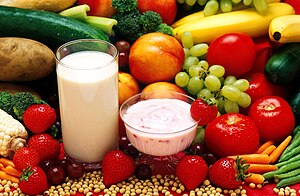Warning: A non-numeric value encountered in /home2/galyna/public_html/thecaloriecounter.net/wp-content/plugins/adsense-daemon/Adsense-Daemon.php on line 243
What is a Carb Load Diet Plan?
A carb-load diet is a diet meant to be taken before you participate in any high-endurance or high-intensity athletic event. It is a method to boost up the energy of the muscles in any athletic feat.
In general, our muscles store little quantity of glycogen, which is an energy source, derived from carbohydrates. The glycogen present normally in muscles is adequate for recreational exercise, but if the person performs intense exercise exceeding 90 minutes, the muscles of the person may run our of the stored glycogen. This action may result in an underperformance with lessened stamina.
For an endurance athlete like a marathon runner, or for persons preparing for high intensity competitions, carb-load diet may help to store more glycogen in the muscles, providing the vital energy needed in such performances.
Carb-load diet is beneficial to marathon runners, swimmers or cyclists, or for people who perform intense workouts lasting for 90 minutes or more.
Carbohydrates as a source of energy
Carbohydrates are the body’s main source of energy, and can be generally understood as starches and sugars.
Simple carbohydrates are found in milk and fruits, and also in the foods made from sugar, like candy.
Complex carbohydrates are present in grains and legumes, and in starchy vegetables, like corn, peas and potatoes.
During the digestion process, sugar is converted to carbohydrates by the body. Sugar gets into the blood, and consequently to the individual cells and releases energy. Some sugar is also stored in the liver and muscles as glycogen-the energy source of your muscles.
Card Load Diet
The Carb-load diet is done in 2 steps, starting a week before a high-endurance event:
Step A: About 7 days before the event, manage you carbohydrate intake to make it 50-55% of your total input of calories. Increase the protein and fat intake to balance for the loss in carbohydrates.
Step B: About 3-4 days before the event, increase the intake of carbohydrate to about 70 % of your total input of calories. Replace foods high in fat with extra carbohydrate-rich foods. Get a complete rest one day before the event.
To get adequate carbohydrate intake, lightweight athletes should take 4.5 grams of carbs per kg of body weight, while heavyweight athletes should take consume 3.5 grams per kg of body weight.


 Learn "underground" fat-burning secrets!
Learn "underground" fat-burning secrets!
[/jbox]
[jbox color="blue" title="Like what you read?"]

